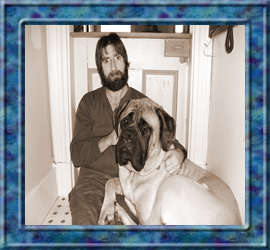Past Research Projects
INKE
INKE.org
 The Implementing New Knowledge Environments Major Collaborative Research Initiative is a SSHRC-funded, multi-national proposal led by Canada Research Chair Dr. Ray Siemens, of the University of Victoria INKE is supported by SSHRC funding of $2.5million and Partner and Institutional support of a further $10.5 million.
The Implementing New Knowledge Environments Major Collaborative Research Initiative is a SSHRC-funded, multi-national proposal led by Canada Research Chair Dr. Ray Siemens, of the University of Victoria INKE is supported by SSHRC funding of $2.5million and Partner and Institutional support of a further $10.5 million.
 No form of human knowledge passes into a new medium unchanged. Digital technology is fundamentally altering the way we relate to writing, reading, and the human record itself. The pace of that change has created a gap between core cultural and social practices that depend on stable reading and writing environments, and the new kinds of digital artifacts – electronic books, being just one type of many – that must sustain those practices into the future. INKE will bridge this gap by theorizing the transmission of culture in pre- and post-electronic media, by documenting the facets of how people experience information as readers and writers, by designing new kinds of interfaces and artifacts that afford readers new abilities, and by sharing those designs in online prototypes that implement new knowledge environments for researchers and the Canadian public.
No form of human knowledge passes into a new medium unchanged. Digital technology is fundamentally altering the way we relate to writing, reading, and the human record itself. The pace of that change has created a gap between core cultural and social practices that depend on stable reading and writing environments, and the new kinds of digital artifacts – electronic books, being just one type of many – that must sustain those practices into the future. INKE will bridge this gap by theorizing the transmission of culture in pre- and post-electronic media, by documenting the facets of how people experience information as readers and writers, by designing new kinds of interfaces and artifacts that afford readers new abilities, and by sharing those designs in online prototypes that implement new knowledge environments for researchers and the Canadian public.
 Acadia University issued a press release announcing this project on March 27, 2009.
Acadia University issued a press release announcing this project on March 27, 2009.
EMiC
EMiC.org
 Editing Modernism in Canada is a $2.1million SSHRC Knowledge Cluster led by Dr. Dean Irvine at Dalhousie University. EMiC includes representation from regions across Canada and from France, England, and the United States. Its objectives are (1) to coordinate editorial initiatives undertaken by its participants and develop new ways to network individual projects and researchers, (2) to train students and new scholars using experiential-learning pedagogies, (3) to facilitate the international dissemination of our collaborative research and editorial work in both print and digital media, and (4) to develop sustained relationships among universities, publishers, the media, public libraries, and non-profit cultural organizations (book clubs, reading groups, reading series, literary festivals) that will contribute to a public literary culture and ensure that Canadian modernism becomes an ongoing part of literary discourse in Canada. The project aims at producing critically edited texts by modernist Canadian authors. Edited texts will include poetry, fiction, drama, autobiography, correspondence, and non-fictional prose from the early to mid-twentieth centuries.
Editing Modernism in Canada is a $2.1million SSHRC Knowledge Cluster led by Dr. Dean Irvine at Dalhousie University. EMiC includes representation from regions across Canada and from France, England, and the United States. Its objectives are (1) to coordinate editorial initiatives undertaken by its participants and develop new ways to network individual projects and researchers, (2) to train students and new scholars using experiential-learning pedagogies, (3) to facilitate the international dissemination of our collaborative research and editorial work in both print and digital media, and (4) to develop sustained relationships among universities, publishers, the media, public libraries, and non-profit cultural organizations (book clubs, reading groups, reading series, literary festivals) that will contribute to a public literary culture and ensure that Canadian modernism becomes an ongoing part of literary discourse in Canada. The project aims at producing critically edited texts by modernist Canadian authors. Edited texts will include poetry, fiction, drama, autobiography, correspondence, and non-fictional prose from the early to mid-twentieth centuries.
Understanding Research Teams in Humanities Computing Environments
 The research has been made possible by a grant from SSHRC’s Image, Text, Sound, and Technology grant program.
The research has been made possible by a grant from SSHRC’s Image, Text, Sound, and Technology grant program.
 Given the nature of their work with computers, the Digital Humanities community is continually incorporating collaborative software technologies to facilitate research across disciplines and among disparate locations. There are presently several research projects involving national and international teams, and millions of dollars ,already in place, with others in development. Despite this use of research teams, the individuals involved rarely receive any preparation in research team development. Given the ongoing incorporation of collaborative software tools and teams in research projects, there is an identifiable and continuing need to develop a body of work describing or addressing the issue of teamwork within the Humanities generally, and the Digital Humanities community specifically. This research project has been designed and conducted to help us understand the best methods for bringing together theorists, experimentalists, and technologists from a range of disciplines for effective team-based research.
Given the nature of their work with computers, the Digital Humanities community is continually incorporating collaborative software technologies to facilitate research across disciplines and among disparate locations. There are presently several research projects involving national and international teams, and millions of dollars ,already in place, with others in development. Despite this use of research teams, the individuals involved rarely receive any preparation in research team development. Given the ongoing incorporation of collaborative software tools and teams in research projects, there is an identifiable and continuing need to develop a body of work describing or addressing the issue of teamwork within the Humanities generally, and the Digital Humanities community specifically. This research project has been designed and conducted to help us understand the best methods for bringing together theorists, experimentalists, and technologists from a range of disciplines for effective team-based research.
 I am the PI on this project, but the majority of the credit for pulling everything together really belongs to my co-applicants: Wendy Duff, University of Toronto; Dr. Lynne Siemens, University of Victoria; Claire Warwick, University College, London.
I am the PI on this project, but the majority of the credit for pulling everything together really belongs to my co-applicants: Wendy Duff, University of Toronto; Dr. Lynne Siemens, University of Victoria; Claire Warwick, University College, London.
Our work builds on previous studies, some of which are:
 Siemens, R. G., M. Best, et al. (2002). "The Credibility of Electronic Publishing: A Report to the Humanities and Social Sciences Federation of Canada." Text Technology 11(1): 1-128.
Siemens, R. G., M. Best, et al. (2002). "The Credibility of Electronic Publishing: A Report to the Humanities and Social Sciences Federation of Canada." Text Technology 11(1): 1-128.
 Toms, E., G. Rockwell, et al. (2004). "The Humanities Scholar in the Twenty-first Century: How Research is Done and What Support is Needed." Joint International Conference of the Association for Computers and the Humanities and the Association for Literary & Linguistic Computing. Göteborg, Sweden.
Toms, E., G. Rockwell, et al. (2004). "The Humanities Scholar in the Twenty-first Century: How Research is Done and What Support is Needed." Joint International Conference of the Association for Computers and the Humanities and the Association for Literary & Linguistic Computing. Göteborg, Sweden.
 Warwick, C. (2004). "No Such Thing as Humanities Computing?" An Analytical History of Digital Resource Creation and Computing in the Humanities. Joint International Conference of the Association for Computers and the Humanities and the Association for Literary & Linguistic Computing. Göteborg, Sweden. (Prepublication document available here).
Warwick, C. (2004). "No Such Thing as Humanities Computing?" An Analytical History of Digital Resource Creation and Computing in the Humanities. Joint International Conference of the Association for Computers and the Humanities and the Association for Literary & Linguistic Computing. Göteborg, Sweden. (Prepublication document available here).
Developing Digital Literacy
 The demands made on a reader in an electronic (digital) environment differ significantly from those in a print-on-paper environment. Conklin (1987) describes the “cognitive overhead” of reading, in any environment, when discussing the impedi-ments to reading electronic documents. Fischer (2003) notes that “the definition of ‘reading’ is itself experiencing change, its future the stuff of science fiction,” while Richard E. Mayer has engaged in sev-eral studies (with Moreno 1999 & 2003; with Chandler 2001; with Dow & Mayer 2003) in which he has investigated the most fruitful approaches to reading as a means of learning in electronic environments.
The demands made on a reader in an electronic (digital) environment differ significantly from those in a print-on-paper environment. Conklin (1987) describes the “cognitive overhead” of reading, in any environment, when discussing the impedi-ments to reading electronic documents. Fischer (2003) notes that “the definition of ‘reading’ is itself experiencing change, its future the stuff of science fiction,” while Richard E. Mayer has engaged in sev-eral studies (with Moreno 1999 & 2003; with Chandler 2001; with Dow & Mayer 2003) in which he has investigated the most fruitful approaches to reading as a means of learning in electronic environments.
 In the Acadia Digital Culture Observatory Dr. Sonya Major and I will obtain answers to the questions of how people read from the computer screen, how they follow directions, what they find easy, what not so easy, and what obscure. By recording and analysing every aspect of readers’ interactions with every element of multimedia (graphic, textual, auditory, self-manipulated, and automated) in the Observatory, we can develop models for effective interactive learning in the digital age.
In the Acadia Digital Culture Observatory Dr. Sonya Major and I will obtain answers to the questions of how people read from the computer screen, how they follow directions, what they find easy, what not so easy, and what obscure. By recording and analysing every aspect of readers’ interactions with every element of multimedia (graphic, textual, auditory, self-manipulated, and automated) in the Observatory, we can develop models for effective interactive learning in the digital age.
The Eleventh Edition of The Arte of Navigation
Coincidental Technologies: Moving Parts in Early Books and in Early Hypertext




